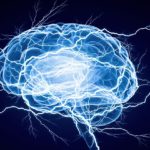Cognitive behavioral therapy is commonly used amongst psychologists to treat a wide variety of mental illnesses and psychological problems. From severe anxiety to extreme phobias and psychosis, its efficacy has been proven over the years as a wide spectrum therapy method that has also been shown to help treat drug and alcohol addiction. Normally, CBT will be used in conjunction with a number of other strategies and therapies as part of a wider-ranging addiction treatment program.
In most cases, Cognitive Behavioral Therapy is used on a short-term basis in order to assist those suffering from substance addiction to get clean. Using the same cause to effect learning approach that your brain used to become addicted, to begin with. In this article, we will outline exactly what CBT is, what it is used for and how it helps millions of people around the world beat their addiction problems.
CBT: An Overview
CBT is largely based on the theory that our emotions and the things that we do are caused by our thoughts, not necessarily on the situation or environment we find ourselves in. Most people in their day to day lives cannot just magically change their circumstances but what they can do is learn how to appropriately think about these circumstances. Which, in turn, will positively affect the way you respond to them.
When treating addiction, the foremost goals of CBT are the following:
- Teaching the addicted persons to identify circumstances in which they will be highly tempted to abuse drugs or alcohol.
- Teaching them how to avoid these situations when possible.
- And teaching them how to cope with additional behaviors patterns that could lead to relapse.
Main Components
In most cases, CBT has two primary components when being applied to addiction treatment, these are known as Functional Analysis and Skills Training.
Functional Analysis
Functional Analysis charges the patients to work alongside their chosen medical professional in order to try and identify emotions, situations, and circumstances that brought this person to rehab. This can help them to ascertain potential triggers and risks that could lead to a return to drug use.
This will also give the addicts’ therapist a better insight into the kind of people they are and why they chose to abuse drugs and alcohol, to begin with. In addition to identifying circumstances which may cause the addict to cope poorly and put them again at risk of relapse.
Skills Training
When users come to the point at which their addiction is so severe that they need professional help from a rehab center then it is more than likely that that person is using drugs and alcohol as a way to deal and cope with the problems in their lives. CBT’s main goal is to get the person to relearn these essential coping mechanisms in order to help them react to difficult situations in a more normal way.
The addicts’ therapist will attempt to assist them in identifying negative habits and unlearning them and teaching them better, more appropriate skills and behavioral habits. It is all about changing the way the addicts perceive their addiction and then teaching them a new way of coping with these same circumstances that lead them to drug or alcohol addiction initially.
How Long Will Treatment Last?
Cognitive Behavioral Therapy is very much focused on solving immediate issues with a structured and goal orientated approach and is one of the things that it lends its success to. Because of this, the duration of treatment on average using CBT to help them overcome their addiction is normally a short term one.
However this is normally used in conjunction with other forms of therapy which can sometimes last for years and even decades, CBT is usually complete within 16 sessions, making it one of the most efficient and powerful therapy options to consider for people struggling with serious drug and alcohol addiction.
Efficacy
In a study released by the National Institute on Drug Abuse, over 24 completely randomized control trials have been conducted over people with a wide variety of different addictions, such as tobacco, opiates, caffeine, marijuana, and cocaine. Making CBT one of the most widely researched and regularly evacuated psychological treatments for substance abuse disorders and related mental illness in the world!
In all studies conducted using CBT, it has been shown time and time again to be the most effective form of treatment when received exclusively. However, when the studies are performed on those with a mixed treatment programme, the results have been less dramatic. Some show CBT to be vastly more effective than traditional treatments whereas others have shown it to be merely equal to these other techniques.
In terms of other methods of treating substance abuse, a combination of a number of different treatments is generally recommended as it will give a more all-encompassing approach to the person’s individual reasons for using drugs or alcohol. When combined with things like support group participation and regular counseling, CBT has been shown to have the most consistent success rates.
To summarize, CBT is most certainly an effective and invaluable tool when it comes to an individual’s recovery from drug and alcohol addiction. However, as with many things in life, it isn’t to be considered as a “one size fits all” solution to everybody’s addiction issues and may not work as well for some as others. This is due to individuals having their own unique set of circumstances and behavioral patterns and copes with them in a different way.
Here at Clarity Thailand, we offer CBT Therapy for all of our residents who feel it could work for them, integrating it into your overall recovery plan in conjunction with various other treatments and therapies that will give you the best chances at success. For more information about our beautiful rehab in Thailand, please contact us at +66 97 256 4084






